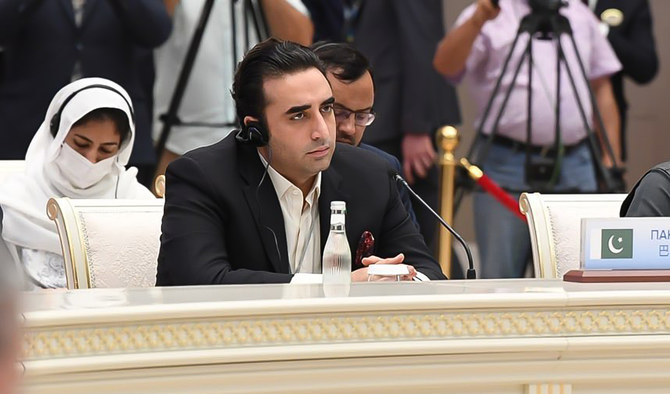ISLAMABAD: Pakistani Foreign Minister Bilawal Bhutto-Zardari on Friday welcomed UAE’s desire to join the Shanghai Cooperation Organization (SCO) and welcomed new Dialogue Partners Saudi Arabia, Qatar and Egypt, saying the developments were a reflection of the organization’s growing importance in the world.
FM Bhutto-Zardari is in Tashkent, Uzbekistan, leading the Pakistani delegation for a two-day Shanghai Council of Foreign Ministers which started yesterday, Thursday. He is also expected to hold meetings with his counterparts from the SCO during his stay in Tashkent.
The SCO is an inter-governmental organization whose permanent members include China, Russia, Pakistan, India, Uzbekistan, Tajikistan, Kyrgyzstan and Kazakhstan.
On July 4, SCO Secretary-General Zhang Ming met UAE Ambassador Extraordinary and Plenipotentiary Ali Obaid Al Dhaheri during which the UAE diplomat said he followed the activities of the SCO closely and with interest and highly appreciated its achievements in ensuring stability in the region.
“We welcome new Dialogue Partners Saudi Arabia, Qatar and Egypt and look forward to brotherly Iran taking its place soon as a full member,” Bhutto-Zardari said during his address at the council of foreign ministers.
“We also welcome the UAE’s desire to join the SCO family,” he added, saying the SCO's membership expansion was a testimony to its growing importance "in the global multilateral architecture."
The foreign minister also supported the applications of Bahrain and Maldives as new dialogue partners and Azerbaijan and Armenia as new observers of the group.
Currently, the SCO has four observer states, namely Afghanistan, Belarus, Iran and Mongolia, and six dialogue partners namely Turkey, Azerbaijan, Armenia, Cambodia, Nepal and Sri Lanka.












